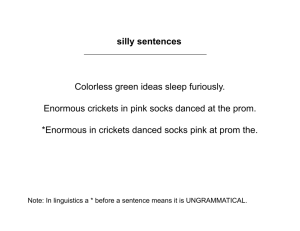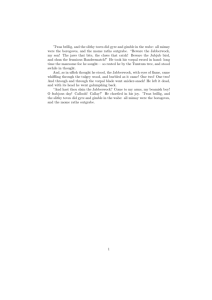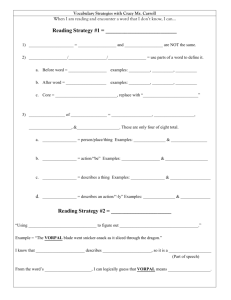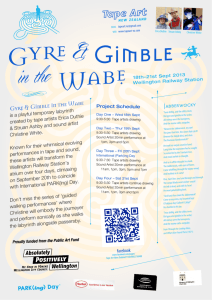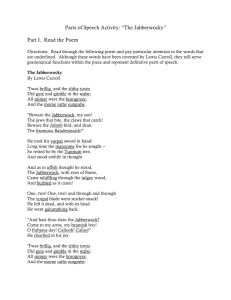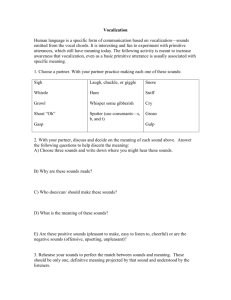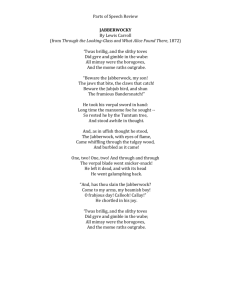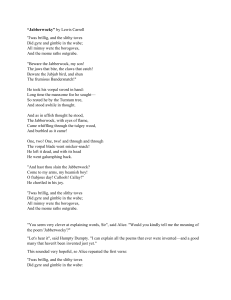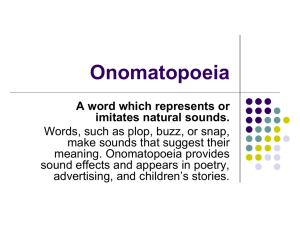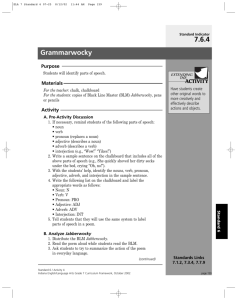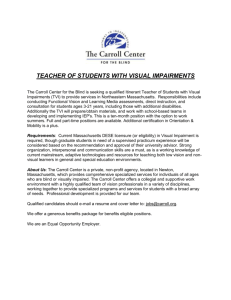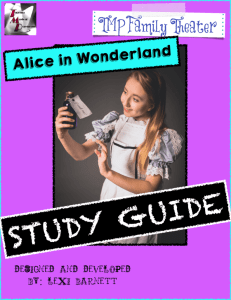Jabberwocky By: Lewis Carroll - Mrs. Pruitt`s Class
advertisement
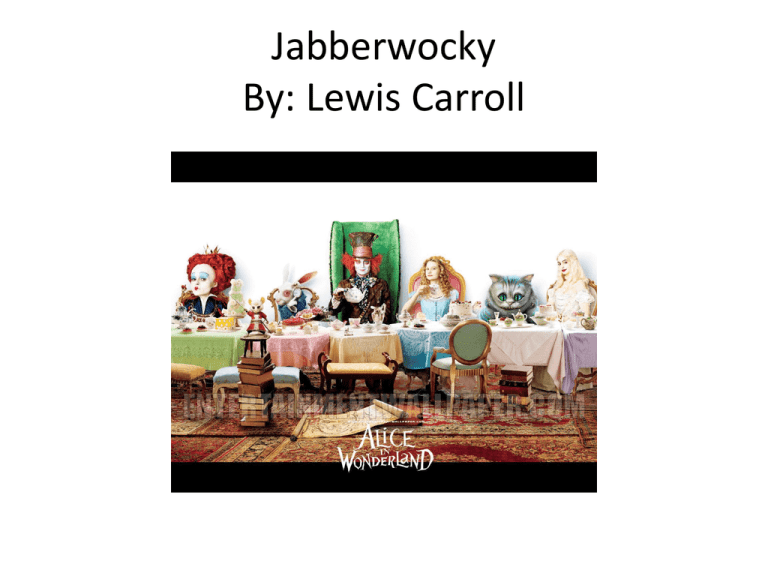
Jabberwocky By: Lewis Carroll Jabberwocky This whole poem is nonsense. Wait, what? No, it's true. "Jabberwocky" is, in all probability, the most famous nonsense poem ever written in English. The vast majority of the words in this poem are clever inventions of its author. This makes sense if you consider the fact that it was originally published in its entirety in the 1871 book Through the Looking-Glass, and what Alice Found There by Lewis Carroll. Does that sound familiar? It should. With its companion piece, Alice's Adventures in Wonderland, "Jabberwocky" is the basis for the wildly popular Disney movie Alice in Wonderland. Lewis Carroll or Charles Lutwidge Dodgson? Carroll created the pen name Lewis Carroll by translating his first and middle names into Latin, reversing their order, and loosely translating them back into English. He published under this pseudonym to protect his privacy. Lewis Carroll • Carroll, whose real name was Charles Lutwidge Dodgson, was born in the English village of Daresbury. He was the eldest son (out of 11 children) of a minister. • To entertain his siblings, Carroll wrote stories and poems and drew pictures, which he collected in magazines that he gave out to the family. • Carroll was a student at Rugby School, where he excelled academically but was the victim of bullying. He went on to study mathematics and classical studies at Christ Church, Oxford. So nonsense has a point? • Jabberwocky," despite its goofy language, is about facing your demons. It's a strange world we live in, filled with all sorts of unknowns, and every now and again you're bound to round a corner and come face to face with something horrible (metaphorically, we hope). But we all have "vorpal blades" (L. 18) lying around somewhere, just waiting to vanquish our awful foe. And when we do, it's awesome. We're awesome. And we go along our merry way. So much nonsense! • Identify the unknown words in the text. What part of speech do you think they are – noun, verb, adjective or adverb? • brillig -_________ mimsy -_________ • slithy -_________ borogoves - _________ • toves - ________ outgrabe - _________ • gyre - _________ mome -_________ • gimble -_________ raths - ________ • wabe - ________ • How did you decide what part of speech they were? Decide on the meaning of the words. • • • • • • • • • • • • brillig -_______________________________ slithy - _______________________________ toves - _______________________________ gyre - _______________________________ gimble -_______________________________ wabe - _______________________________ mimsy -_______________________________ mome - _______________________________ raths - _______________________________ borogoves - ___________________________ outgrabe – ___________________________ How did you decide the meaning of the words? There is one documented explanation of the first stanza by Carroll himself. He gives us a summary through the character of Humpty-Dumpty (yup, the one who fell off the wall) in Through the Looking-Glass. For what it's worth (after all, nothing is entirely reliable in Carroll's Wonderland), I present to you a summary of the first stanza vocabulary according to Humpty: • Brillig: four o' clock in the afternoon, because you start broiling things for dinner • Slithy: lithe and slimy • Toves: "something like badgers, something like something like corkscrews" (125) • Gyre and gimble: to gyre is to go around like a and gimble is to make holes in something • Wabe: the grass plot surrounding a sun-dial (so because it goes a ways in each direction) • Mimsy: combination (called a portmanteau) of miserable that's when lizards, and gyroscope, named flimsy and • Borogoves: a "thin, shabby-looking bird" that resembles a mop • Mome raths: "well, a rath is a sort of green pig, but mome I'm not sure about, I think it's short for 'from home' – meaning they'd lost their way, you know" (126) • Outgrabe: a combination of whistling and bellowing with a sneeze in the middle (apparently the present tense of this verb is outgribe, meaning outgrabe is past tense, a little like give and gave). Now that we have read this poem that makes no sense, it is time for some nonsense. Typical Student Questions • Where am I going to see a stupid Jabberwocky in the “real world?!” • Why, in the movie! Duh!!! • Reading comprehension even if it is nonsense can be a money-maker!
